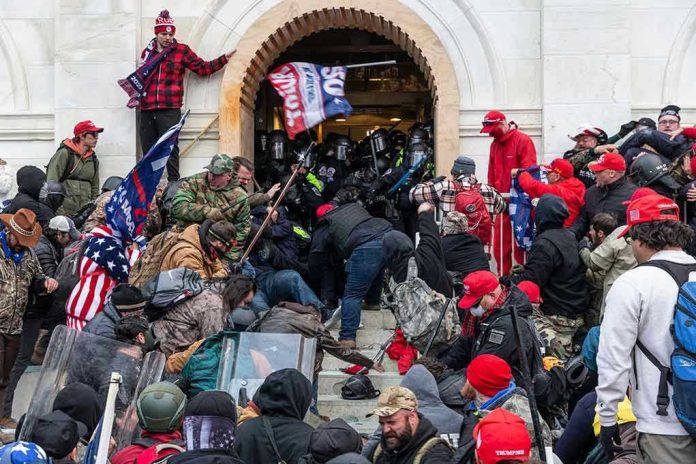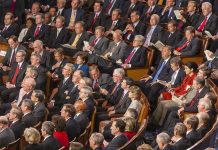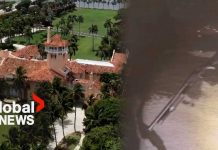
A pardoned January 6 rioter has been charged with plotting to assassinate House Minority Leader Hakeem Jeffries, raising serious questions about presidential pardons.
Story Highlights
- Christopher Moynihan, pardoned by President Trump, is accused of planning an assassination.
- The case reignites debate over the consequences of clemency for January 6 participants.
- Political violence against public officials is on the rise, with law enforcement overwhelmed.
Moynihan’s Arrest Sparks Debate
Christopher Moynihan, a participant in the January 6 Capitol riot, has been arrested for allegedly plotting to assassinate Hakeem Jeffries, House Minority Leader. Moynihan had been previously pardoned by President Trump, which has now come under scrutiny given these charges. Law enforcement reports that an anonymous tip led to Moynihan’s arrest, highlighting concerns about the effectiveness of threat assessment mechanisms in preventing violence against public officials.
Moynihan was arraigned on October 21, 2025, pleading not guilty to charges of making a terroristic threat. This incident underscores the ongoing risks posed by individuals involved in the January 6 riot, who were pardoned en masse by Trump earlier this year. The case has added fuel to the fire of political debates surrounding the use of presidential pardons, particularly for politically motivated crimes.
Political Reactions and Implications
Hakeem Jeffries, the alleged target, condemned the pardon policy, linking it to increased threats against lawmakers like himself. Meanwhile, Speaker Mike Johnson deflected broader questions about the pardons by focusing instead on violence from the political left. This partisan divide highlights the challenges faced by lawmakers in addressing political violence while maintaining bipartisan security measures.
The rise in political threats has prompted calls for enhanced security measures for members of Congress. The U.S. Capitol Police are dealing with a significant increase in threat assessments, reflecting the tense and polarized political climate. Experts argue for more robust intervention protocols to prevent such threats from escalating into action.
Consequences for Presidential Pardons
The arrest of Moynihan has sparked renewed scrutiny of Trump’s decision to pardon January 6 rioters. Critics argue that blanket pardons for politically motivated offenders can undermine public safety and legal accountability. Proponents of the pardons may view Moynihan’s case as an exception rather than the rule, advocating for the potential of rehabilitation and second chances.
This incident brings to light the ongoing debate over the balance between executive clemency and public safety, especially in politically charged cases. As the investigation continues, the legal and political implications of Moynihan’s actions will likely remain a focal point of discussion in the months to come.
Sources:
Pardoned Jan. 6 Rioter Charged with Plotting Jeffries’ Assassination














